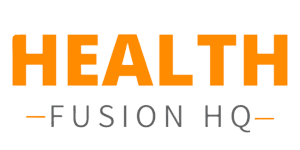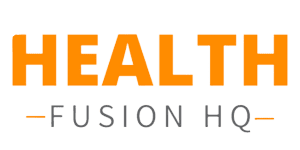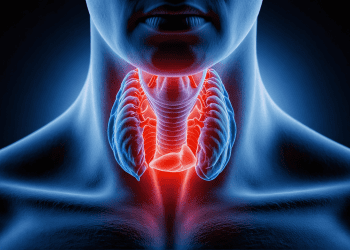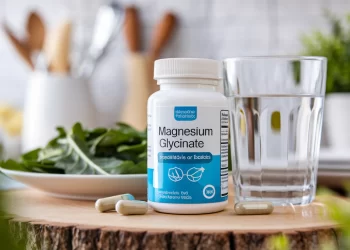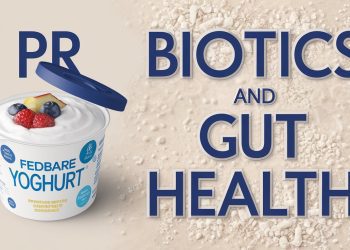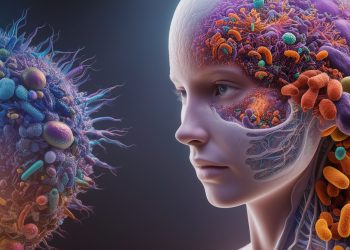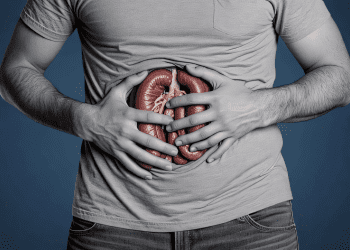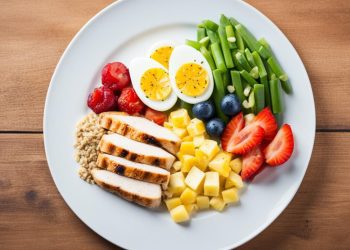This article will delve into the fascinating world of testosterone killing foods and their impact on your health.
Are you aware of testosterone levels’ significant influence on your mood, energy, libido, muscle mass, bone density, and even your susceptibility to certain diseases? Testosterone is not limited to being a hormone found solely in males; it is also produced by women in smaller quantities and plays a crucial role in their overall health and well-being.
However, several factors can cause a decline in your testosterone levels, including stress, aging, medication, and diet. This article aims to explore common foods that may lower testosterone levels and provide you with alternatives to naturally boost them.
Join us as we unlock the secrets of testosterone-killing foods and embark on a journey toward hormonal harmony and vibrant health.
| Key Takeaways |
| 1. Testosterone is essential for various aspects of health, including mood, energy, muscle mass, and bone density. |
| 2. Certain foods, such as vegetable oils, trans fats, and sugar, may lower testosterone levels. |
| 3. Phytoestrogens found in soy and flaxseed can mimic estrogen and decrease testosterone. |
| 4. Alcohol, mint, and licorice root can also negatively impact testosterone production. |
| 5. To boost testosterone naturally, incorporate foods like olive oil, coconut oil, eggs, oysters, and salmon. |
| 6. Nutrients like zinc, vitamin D, and protein support testosterone production and maintenance. |
| 7. Broccoli, garlic, pomegranate, and dark chocolate offer additional benefits for testosterone levels. |
| 8. It’s important to maintain a balanced diet and consult a doctor for personalized advice on testosterone levels. |
You can read the following article for a comprehensive guide to Testosterone levels and how they work – Testosterone Levels by Age – Everything You’ve Ever Wanted To Know
The Testosterone Killing Foods
Certain foods can negatively impact your testosterone levels, particularly if consumed frequently or excessively. Let’s take a look at some foods that studies suggest may lower testosterone levels:
- Vegetable oils: These oils contain high levels of polyunsaturated fats, which may interfere with testosterone production.
- Trans fats: Found in processed foods, trans fats have been linked to lower testosterone levels and various health issues.
- Sugar: Consumption of sugar can cause insulin spikes and inflammation, leading to reduced testosterone levels.
- Baked goods: These goods typically contain refined carbohydrates and high sugar content, which can have similar effects to sugar itself.
- Soy: Soy contains phytoestrogens, which can mimic estrogen in the body and subsequently lower testosterone levels.
- Flaxseed: Similar to soy, flaxseed contains phytoestrogens that can have estrogenic effects.
- Nuts: Nuts are high in omega-6 fatty acids, which can increase inflammation and decrease testosterone levels.
- Alcohol: Alcohol consumption can impair liver function and disrupt hormone balance, ultimately leading to lower testosterone levels.
- Mint: Mint contains menthol, which has the potential to reduce testosterone levels, especially in women.
- Licorice root: Licorice root contains glycyrrhizin, which can inhibit testosterone production.

If you have concerns about your testosterone levels, it is advisable to limit or avoid these foods and consult your doctor for personalized advice.
Foods that Boost Testosterone Levels
Testosterone is a hormone that plays a crucial role in various aspects of health, including muscle mass, bone density, libido, and mood. Certain foods can help boost testosterone levels by providing essential hormone production and maintenance nutrients. Here are some examples:
- Olive oil: Olive oil is rich in monounsaturated fats and antioxidants that can support testosterone production. Additionally, it can lower inflammation and improve blood vessel function, benefiting testosterone levels.
- Coconut oil: High in saturated fats and medium-chain triglycerides (MCTs), coconut oil can provide energy and hormone precursors for testosterone synthesis. It also possesses anti-inflammatory and antimicrobial properties, which can protect the testes from infections and oxidative stress.
- Eggs: Eggs are a great source of protein, cholesterol, and vitamin D, which can enhance testosterone levels. Protein aids muscle mass development and increases metabolic rate, stimulating testosterone production. Cholesterol and vitamin D are precursors for testosterone synthesis in the testes and other tissues.
- Oysters: Oysters are rich in zinc, a mineral crucial for testosterone production and maintenance. Zinc also helps regulate the activity of aromatase, an enzyme that converts testosterone into estrogen. Oysters contain other nutrients such as selenium, copper, and iodine that support reproductive health.
- Beef: Beef is a protein-rich food that provides iron, zinc, and vitamin B12, all of which support testosterone levels. Protein and iron aid in oxygen transportation to muscles and organs, enhancing physical performance and testosterone production. Zinc and vitamin B12 help maintain healthy sperm quality and quantity, reflecting testosterone levels.
- Salmon: Salmon is packed with omega-3 fatty acids that reduce inflammation and improve blood flow, benefiting testosterone levels. These fatty acids can also regulate genes involved in testosterone synthesis and metabolism. Salmon is also a source of protein, vitamin D, and selenium, all of which support testosterone levels.
- Broccoli: Broccoli contains indole-3-carbinol (I3C), a compound that aids in metabolizing excess estrogen and increasing testosterone levels. Estrogen is a hormone that opposes the effects of testosterone and can lower its levels in the body. Broccoli also contains phytochemicals with anti-inflammatory and antioxidant effects that protect the testes from damage.
- Garlic: Garlic contains allicin, which boosts nitric oxide production and blood flow, enhancing testosterone levels. Nitric oxide relaxes blood vessels, improving circulation and facilitating the delivery of oxygen and nutrients to the testes and other testosterone-producing tissues. Garlic also possesses antibacterial and antifungal properties that help prevent infections that may impair testosterone levels.
- Pomegranate: Pomegranate is rich in antioxidants, polyphenols, and nitrates that improve cardiovascular health and testosterone levels. Antioxidants and polyphenols scavenge free radicals, reducing oxidative stress that can damage the testes and lower testosterone levels. Nitrates increase nitric oxide production and blood flow, improving erectile function and testosterone levels.
- Dark chocolate: Dark chocolate contains flavonoids, magnesium, and zinc, which have positive effects on mood, blood pressure, and testosterone levels. Flavonoids improve endothelial function and nitric oxide production, enhancing blood flow and testosterone levels. Magnesium and zinc are essential minerals for testosterone production and maintenance.
These foods can help boost testosterone levels by providing nutrients supporting hormone production and maintenance. However, it’s important to note that they are not substitutes for medical treatment or advice. If you have low testosterone levels or related symptoms or conditions, consult your doctor before making any dietary changes or taking supplements.

Summary
In this article, we’ve explored foods that have a negative impact on your testosterone levels. Foods that boost testosterone levels and discussed their significance for health and well-being. Testosterone is a hormone that plays a vital role in physical and mental health, including muscle mass, bone density, mood, libido, and fertility.
Incorporate testosterone-friendly foods such as oysters, eggs, salmon, broccoli, and garlic into your diet to increase testosterone levels. Conversely, foods like soy products, alcohol, mint, and processed foods may lower testosterone levels. Maintaining a balanced diet that includes ample protein, healthy fats, vitamins, and minerals is important to achieve a healthy testosterone balance.
Adding testosterone-friendly foods to your diet can be as simple as including them in smoothies, salads, soups, or sandwiches. For example, blend spinach, banana, almond milk, and honey for a delicious and nutritious smoothie. Alternatively, toss tuna, eggs, lettuce, tomatoes, and olive oil for a hearty and satisfying salad.
By making these small changes to your diet, you can improve your testosterone levels and enjoy the benefits of better health and well-being. How else do you incorporate testosterone-friendly foods into your diet? Share your ideas in the comments below!
Frequently Asked Questions
Q: What is the role of testosterone in the body?
A: Testosterone plays a crucial role in various aspects of health, including mood regulation, energy levels, muscle mass development, bone density maintenance, libido, and fertility.
Q: Are there foods that can lower testosterone levels?
A: Yes, certain foods may lower testosterone levels. These include vegetable oils, trans fats, sugar, baked goods, soy, flaxseed, nuts, alcohol, mint, and licorice root.
Q: How do phytoestrogens affect testosterone levels?
A: Phytoestrogens, found in foods like soy and flaxseed, can mimic estrogen in the body. This can lead to a decrease in testosterone levels.
Q: Can I naturally boost my testosterone levels through diet?
A: Yes, there are foods that can help boost testosterone levels naturally. Some examples include olive oil, coconut oil, eggs, oysters, beef, salmon, broccoli, garlic, pomegranate, and dark chocolate.
Q: What nutrients are important for testosterone production?
A: Nutrients such as zinc, vitamin D, protein, and monounsaturated fats are important for testosterone production and maintenance.
Q: Can dietary changes alone significantly increase testosterone levels?
A: While a balanced diet can support healthy testosterone levels, individual results may vary. It’s best to consult a doctor for personalized advice if you have concerns about your testosterone levels.
Q: Can I substitute medical treatment with dietary changes to address low testosterone levels?
A: No, dietary changes are not a substitute for medical treatment. If you have low testosterone levels or related symptoms, it’s important to consult your doctor for proper evaluation and guidance.
Q: Are there any precautions I should take when incorporating testosterone-friendly foods into my diet?
A: It’s always recommended to consume a balanced diet. If you have any existing medical conditions or are on medications, consult your doctor before making significant dietary changes.
Q: How can I incorporate testosterone-friendly foods into my diet?
A: Add testosterone-friendly foods to smoothies, salads, soups, or sandwiches. For example, you can blend spinach, banana, almond milk, and honey for a smoothie or toss tuna, eggs, lettuce, tomatoes, and olive oil for a salad.
Q: Are there any substitutes for specific foods mentioned in the article?
A: Yes, there are alternative options available. It’s best to consult a nutritionist or do research to find suitable replacements based on your dietary preferences and needs.
